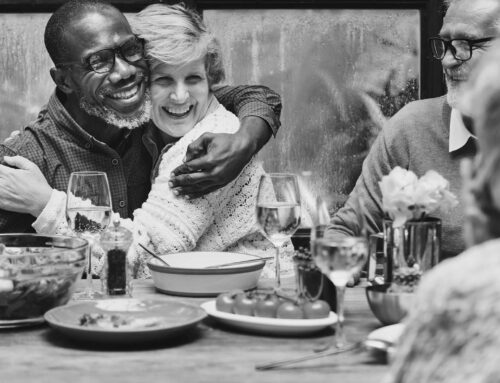
Codependency
Codependency: Understanding, Healing, and Reclaiming Your Life
What Is Codependency?
Codependency is a deeply ingrained pattern of emotional reliance on others, often at the cost of one’s own well-being. It is characterized by an excessive need for approval, control, or validation in relationships, where one’s self-worth becomes intertwined with the happiness or stability of another person. Codependency can manifest in romantic relationships, friendships, family dynamics, or even professional settings, leading to exhaustion, resentment, and emotional turmoil.
At its core, codependency is more than just caring for or supporting someone—it involves an unhealthy level of self-sacrifice, people-pleasing, and an inability to set or maintain boundaries. Those who struggle with codependency often feel responsible for the emotions and actions of others, prioritizing their needs while neglecting their own.
Signs and Symptoms of Codependency
Codependency can take many forms, but common signs include:
- Difficulty Setting Boundaries: Feeling guilty or anxious when saying “no” or expressing your own needs.
- Excessive Caretaking: Constantly rescuing or fixing others, often at the expense of your own health and happiness.
- Fear of Abandonment: Feeling desperate to maintain relationships, even when they are unhealthy or toxic.
- Low Self-Esteem: Basing your self-worth on how much you are needed by others.
- Emotional Suppression: Ignoring your own emotions, desires, and well-being to keep the peace.
- Enabling Harmful Behaviors: Covering up for, excusing, or justifying a loved one’s destructive actions.
- Chronic Anxiety or Guilt: Feeling a deep sense of obligation to take care of others, even when it is not your responsibility.
- Losing Your Sense of Identity: Defining yourself through your role in others’ lives rather than as an individual with your own dreams and aspirations.
- Being Drawn to Dysfunctional Relationships: Attracting or being attracted to people who are emotionally unavailable, controlling, or struggling with addiction, mental illness, or other challenges.
The Origins of Codependency
Codependency often develops in childhood, particularly in families where dysfunction, addiction, neglect, or emotional instability were present. Children in these environments learn that their own needs and emotions must be suppressed to maintain harmony or receive love.
Common childhood experiences that contribute to codependency include:
- Growing up with a parent or caregiver who struggled with addiction, mental illness, or emotional unavailability.
- Feeling responsible for a parent’s emotions or well-being at a young age.
- Being rewarded for self-sacrifice while being discouraged from expressing personal needs or boundaries.
- Experiencing neglect, abuse, or inconsistent love and care.
- Witnessing or experiencing relationships based on control, guilt, or manipulation.
Because these patterns are formed early in life, they often feel like second nature in adulthood, making it difficult to recognize unhealthy relationship dynamics. Many codependent individuals enter relationships with partners, friends, or family members who reinforce these dynamics, creating a cycle that is difficult to break.
Breaking the Cycle of Codependency
Healing from codependency is a transformative journey that involves reclaiming your sense of self, setting healthy boundaries, and learning to prioritize your emotional and mental well-being. At New Life Therapy, we provide compassionate, evidence-based support to help you navigate this process with clarity and confidence.
Our therapeutic approach focuses on:
- Recognizing Unhealthy Patterns – Identifying the behaviors, thoughts, and relationship dynamics that reinforce codependency.
- Establishing Boundaries – Learning to say “no” without guilt and creating space for your own needs, feelings, and desires.
- Building Self-Esteem – Developing a healthy sense of self-worth that is not dependent on external validation.
- Detaching with Love – Letting go of the need to control or “fix” others while maintaining compassion and respect.
- Healing Inner Child Wounds – Addressing the childhood experiences that contributed to codependent tendencies.
- Developing Emotional Independence – Learning to find fulfillment within yourself rather than through external relationships.
- Practicing Self-Care – Prioritizing your well-being through self-love, self-acceptance, and personal growth.
Embracing Healthy Relationships
Healing from codependency does not mean you stop caring for others—it means you learn to care for yourself first. Healthy relationships are built on mutual respect, trust, and balance, not self-sacrifice or control. By addressing the root causes of codependency, you can begin to form relationships that are fulfilling, empowering, and rooted in authenticity.
Imagine a life where:
- You feel confident expressing your needs and desires.
- You form relationships based on love, respect, and equality rather than obligation or guilt.
- You no longer feel responsible for fixing others or controlling their emotions.
- You trust yourself and your decisions without seeking constant reassurance.
- You experience inner peace and joy, knowing that you are enough just as you are.
This kind of freedom is possible—and New Life Therapy is here to help you achieve it.
Take the First Step Toward Healing
If you recognize codependent patterns in your life, know that you are not alone, and healing is possible. With the right guidance and support, you can break free from the cycle of codependency and step into a life of emotional independence, self-love, and healthy, fulfilling relationships.
Are you ready to reclaim your life? Contact New Life Therapy today to schedule a consultation and begin your journey toward healing.













